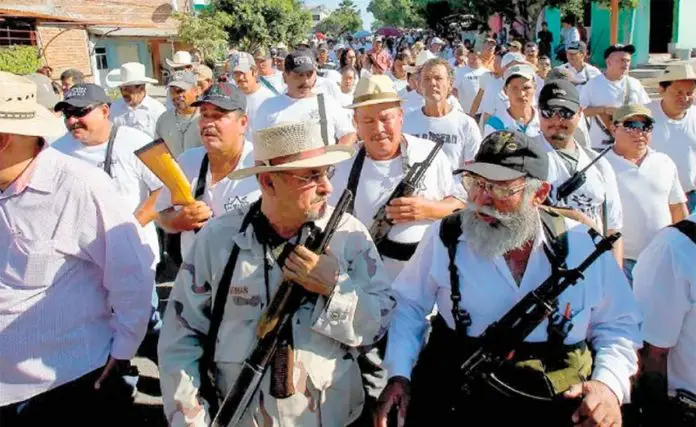Self-defense forces are still needed in some parts of Mexico because municipal and state police lack the capacity to combat organized crime, according to two security experts.
Raúl Benítez Manaut, a professor at the Center for Research on North America at the National Autonomous University, and Martín Barrón Cruz, a researcher at the National Institute of Criminal Sciences, both acknowledged that some self-defense force members are involved in organized crime but agreed that the groups are a necessary evil because authorities are unable to combat criminal gangs in all areas of the country.
According to a report Saturday in the newspaper El Universal, there are at least 50 self-defense forces in Mexico distributed in six states: Guerrero, Michoacán, Veracruz, Morelos, Tamaulipas and Tabasco.
Data from the Interior Secretariat shows that Tabasco is the only one of those six where police numbers meet national standards of 1.9 state police officers per 1,000 inhabitants.
Michoacán, Veracruz and Morelos only have 0.7 officers per 1,000 residents, Guerrero has 0.9 and Tamaulipas has 1.1.

The two experts said that police forces are also weakened because in some cases officers are not subjected to evaluations or they are allowed to continue to serve despite failing confidence tests.
Benítez told El Universal that in the absence of police that are capable of combating crime, some self-defense forces have gained legitimacy in the communities in which they work.
“There are self-defense forces that are quite legitimate and very much supported by the people,” he said.
“This happens in indigenous areas such as Oaxaca, Chiapas and even Michoacán, where they’ve gained a lot of credibility because they dedicated themselves to fighting organized crime when the government didn’t have the capacity to confront these groups,” Benítez added.
“In some towns, self-defense forces are still seen as necessary because of the voids left by the state. In Oaxaca, for example, there is a kind of community social service in which young people, without weapons, are guarding the entrance to a town . . . and people live in peace. However, if they don’t do that, organized crime could infiltrate because the police don’t have the resources or officers to be looking after the towns.”
Barrón said that “in some regions, the self-defense forces continue to be necessary,” explaining that “the problem is that there are no police, nobody wants to be a police officer anymore because of the risks that implies.”
“The government must study each region and determine what their needs are,” he added. “Only in that way will it manage to establish a legal framework and provide security to everyone.”
Interior Secretary Olga Sánchez revealed last week that officials from her department had engaged in dialogue with self-defense groups but on Friday President López Obrador ordered the talks to cease.
Source: El Universal (sp)
